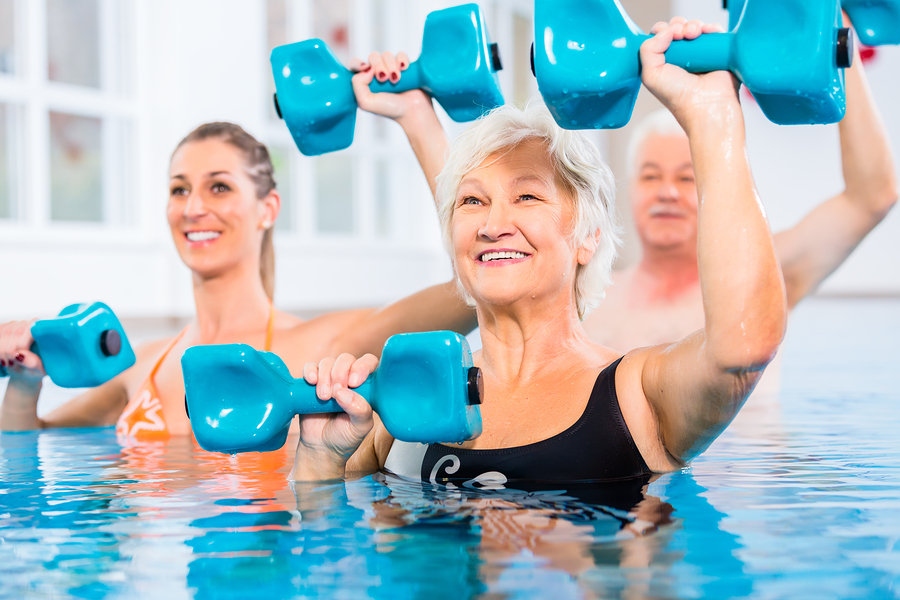- Make It Yourself Lavender Heart-Shaped Bath Bombs!
- 20 Things You Never Knew About “Down There”
- 12 Best Foods For Those Suffering From Arthritis Pain
- 12 Personal Hygiene Mistakes Almost Everyone Makes (Mom Never Told You About #4!)
- 15 Medicinal Plants And Herbs From The Cherokee People
- 12 Mind-Blowing Benefits Of Drinking Coconut Water During Pregnancy
- 12 Outstanding Winter Foods That Won’t Fatten You Up Like A Christmas Turkey
The Brain – How Can We Ensure Successful Aging?
The brain. It is probably the most important part of the human body. The brain is what makes us who we really are. The brain is what controls the rest of our body. Although we typically focus on what we can do to age gracefully physically, it is also important to not forget the most important part of our bodies – our brains. So, what can we do to ensure that our brains age successfully? Let’s look deeper at the 4 main categories of activities which have been shown to positively affect aging of the brain.
1. Mental Exercise
This doesn’t necessarily mean doing the daily crossword or Sudoku. Nor does it mean doing any of those only “brain training” programs. In fact, there are mixed reviews on whether any of these activities are effective in preventing dementia. Instead, this mental exercise category is referring to simply challenging your mind. This includes doing things like reading books, attending lectures, solving puzzles, or learning to play a new game. Most literature agrees that challenging your brain by learning new things is more beneficial than simply doing repetitive “brain exercises”
2. Social Expression
Social connections are important for a variety of reasons. They prevent loneliness and social isolation, reduce depression, among others. However, scientists also agree that social connections are an important way to reduce the risk of dementia. This may be due to the fact friends and conversations often challenge our minds. They may ask us thoughtful questions or propose new ideas. This reduced risk may also come from the decreased stress and positive emotions that come from meaningful social interactions. One study found that older women with large social networks were 26% less likely to develop dementia when compared to their less social counterparts. Thus, it appears social networks may have a protective effect on our brain.
Continue to Page 2
3. Physical Exercise
There are countless articles which show physical exercise is good for many aspects of our health, including our brains. Physical exercise gets our blood pumping and reduces the risk of hypertension, diabetes, and high cholesterol – all of which are risk factors for dementia. Therefore, if we can reduce these risk factors for dementia, we can also reduce the likelihood of developing dementia itself.
4. Creative Expressio
A third category of activities is creative expression. These are things like dancing, painting, playing musical instruments, or making pottery. Creative arts are unique because they involve many parts of the brain paired with physical movement. Not only does a person need to think creatively they must also simultaneously translate these thoughts into brush strokes or dance steps. At the same time, art often evokes strong memories. For example, most people have songs that remind them of dating when they were younger, or paintings that remind them of a vacation with their family. One study found that older individuals who regularly engaged in artistic activities, such as painting have a 76% less chance of developing cognitive impairment. Individuals who participated in craft based creative expression, through things like knitting, woodworking and making pottery were 45% less likely to develop cognitive issues.
READ ALSO: Is It Really In Your Genes? Scientists Discover The Key To The Speed Of Brain Aging
Each of these 4 categories of activities has been shown to have positive effects on aging within the human brain. I am not saying that we stop focusing on our physical aging. However, I am saying that we should be intentional about doing activities within these 4 categories, so that we can allow our brains to age successfully as well.
References:


































